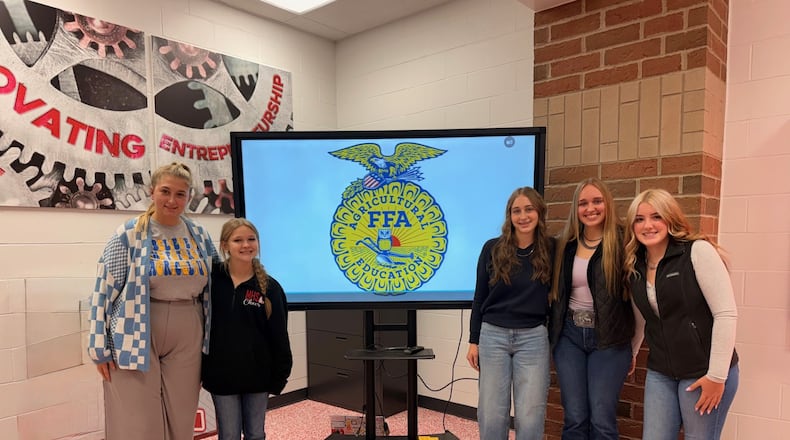According to Butler Tech officials, that student enthusiasm was all it took for Madison teacher and new agriculture instructor Annell Pronchnow to say yes in taking the adult, advisory role.
“It’s a student-led organization,” said Pronchnow, “and I want them to take it as far as they want to go.”
The 1,500-student Madison school system is one of Butler County’s most rural least populous districts, located west and across the Great Miami River from Middletown.
Butler Tech officials reported more than 20 students have already signed up for the new FFA school chapter. Officially named the Madison/Butler Tech FFA Chapter, the group is officially on its way to becoming chartered.
Meetings and classes focus on local agricultural industries including farming, raising livestock and researching careers in farming-related industries. The group looks forward, said school officials, to attending leadership events, meeting members from other local school chapters and beginning to host fundraisers and competitions.
According to Pronchnow, the chapter is already seeing strong support from families and community members.
An advisory board is forming to connect parents, local businesses and alumni who want to help the chapter grow.
Pronchnow said anyone with agricultural experience or an FFA background are encouraged to get involved as the school chapter begins to seek official chartering by the state and national FFA.
“We’ll need chaperones, mentors, and supporters to help us get off the ground,” she said
Madison students and now officers Lyla Comer (President), Alivia Comer (Vice President), Lanie Rawlins (Historian), and Hope Ritter (Secretary) were among the first to raise their hands when the opportunity of a school FFA chapter arose.
“We’ve always heard about FFA at other schools,” said Comer. “When we found out agriculture was coming to Madison, we hoped we’d finally get the same opportunity.”
For Pronchnow, the excitement isn’t just about agriculture – it’s also about students learning so-called “soft skills” to assist their maturation in the adult work world.
“FFA builds leadership, communication, and responsibility,” she said. “Those are skills that serve students for life, whether they go into agriculture or any other career.”
That mission resonates with the students, who see FFA as a perfect fit for Madison’s rural roots.
“This is such a good match for our community,” Comer said. “We want to make the people who grew up here proud and show that agriculture can lead to so many different futures.”
About the Author
